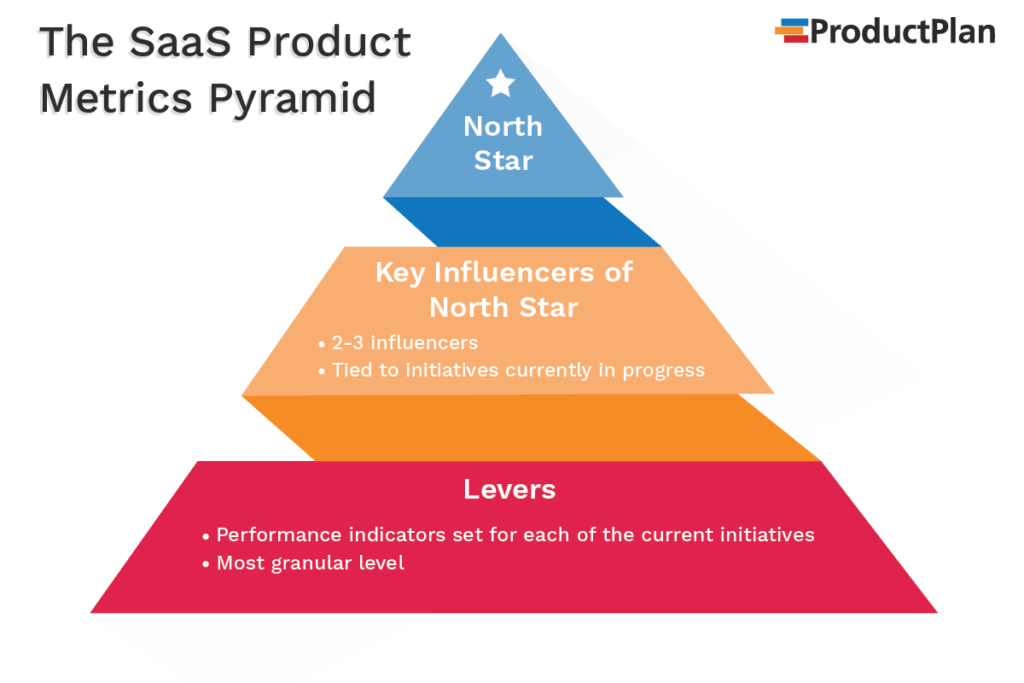Product Metrics
Product Metrics
What is Product Metrics
Definition:
Product metrics are quantitative and qualitative measurements used to evaluate the performance, usability, and success of a product throughout its lifecycle. These metrics provide insights into how users interact with the product, identify areas for improvement, and inform strategic decision-making to optimize user experience, drive growth, and achieve business objectives.
Key Metrics in Product Development:
- User Engagement: Metrics such as active users, session duration, and retention rate measure user engagement and satisfaction with the product. High levels of engagement indicate that users find value in the product and are likely to continue using it over time.
- Conversion Rate: Conversion rate metrics track the percentage of users who take a desired action, such as signing up for a free trial, making a purchase, or completing a specific task within the product. Understanding conversion rates helps identify bottlenecks in the user journey and optimize conversion funnels for improved performance.
- Retention and Churn: Retention metrics measure the percentage of users who continue using the product over time, while churn metrics track the rate at which users stop using the product. Monitoring retention and churn rates helps identify factors influencing user loyalty and attrition, allowing product teams to implement strategies to improve retention and reduce churn.
- Customer Satisfaction: Customer satisfaction metrics, such as Net Promoter Score (NPS) and customer feedback surveys, gauge user sentiment and perception of the product. Positive feedback indicates that users are satisfied with the product experience, while negative feedback highlights areas for improvement and potential pain points to address.
- Feature Adoption: Feature adoption metrics track the usage and adoption rates of specific product features or functionalities. Understanding which features are most popular among users and which are underutilized helps prioritize feature development efforts and allocate resources effectively to enhance product value and usability.
- Performance and Reliability: Performance metrics measure the speed, responsiveness, and reliability of the product, including page load times, uptime/downtime, and error rates. Ensuring optimal performance and reliability is crucial for delivering a seamless user experience and maintaining user trust and satisfaction.
Importance of Product Metrics:
- Data-Driven Decision Making: Product metrics provide actionable insights and data-driven evidence to inform decision-making across all stages of product development, from feature prioritization and optimization to resource allocation and strategic planning.
- Continuous Improvement: By tracking and analyzing product metrics over time, product teams can identify trends, patterns, and areas for improvement, enabling iterative development and continuous enhancement of the product to better meet user needs and business goals.
- Alignment with Business Objectives: Product metrics help align product development efforts with overarching business objectives and key performance indicators (KPIs), ensuring that product initiatives and features contribute to the organization’s overall growth and success.
- User-Centric Approach: Focusing on product metrics allows teams to adopt a user-centric approach to product development, prioritizing features and enhancements based on user feedback, behavior, and preferences to create a more intuitive, valuable, and satisfying user experience.
Key Takeaways:
- Product metrics play a crucial role in evaluating the performance, usability, and success of a product throughout its lifecycle.
- By measuring key metrics such as user engagement, conversion rate, retention, customer satisfaction, feature adoption, and performance, product teams can gain valuable insights to drive informed decision-making, continuous improvement, and alignment with business objectives.
- Embracing a data-driven approach to product development empowers teams to optimize user experience, drive growth, and deliver value to both users and stakeholders, ultimately contributing to the long-term success and sustainability of the product.
Table of Contents





